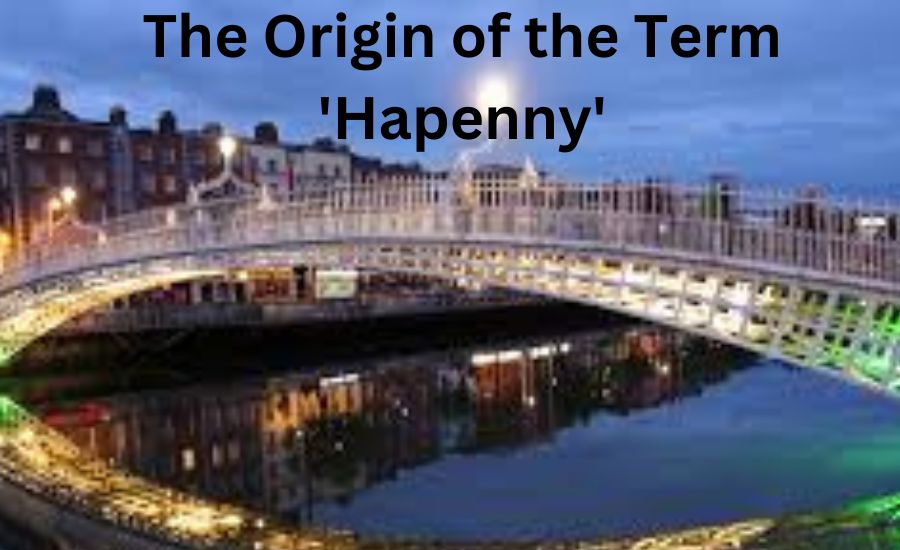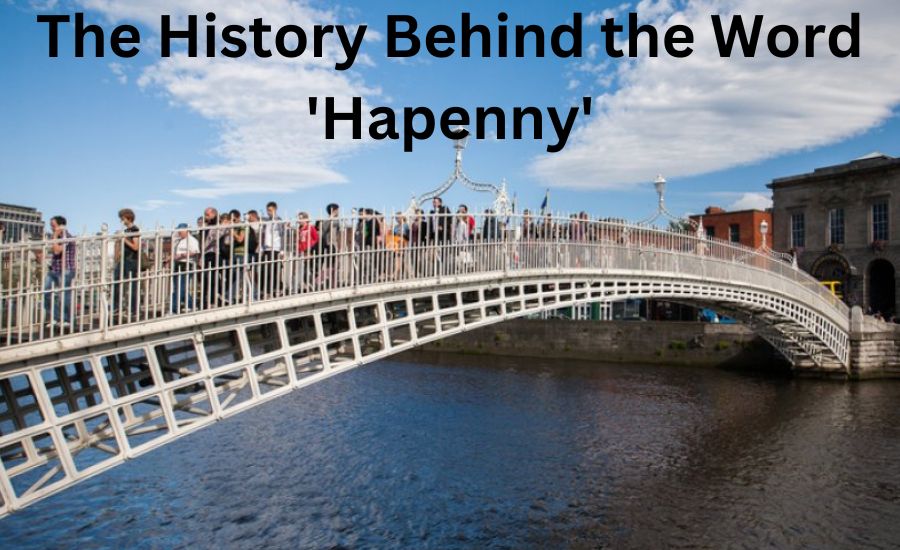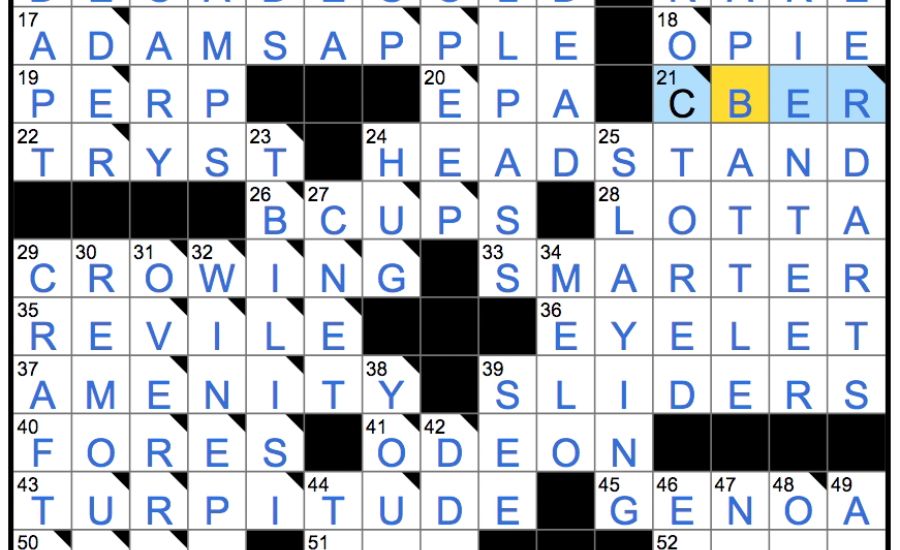Have you ever come across the clue “two farthings colloquially NYT” while solving a crossword puzzle and wondered what it means? The answer to this clue is “HAPENNY.” This term, which comes from British currency, represents a halfpenny, a coin worth half of a penny.
Understanding crossword clues like “two farthings colloquially NYT” can make your solving experience more enjoyable and rewarding. In this post, we will explore the background of the term “hapenny” and how it fits into crossword puzzles.
What Does ‘Two Farthings Colloquially NYT’ Mean?
When you see the clue “two farthings colloquially NYT” in a crossword puzzle, it’s asking for a term that refers to a small amount of British money. The answer here is “HAPENNY.” This word means a halfpenny, which is worth half of a penny.
Understanding terms like “hapenny” can make solving crosswords easier. Usually, crosswords include words or phrases that are not used every day. For example, “two farthings colloquially NYT” uses old British money terms that may not be familiar to everyone.
To solve these clues, think about how the term might fit into the puzzle. Words like “hapenny” come from historical currency and can sometimes be tricky to recognize. Keep practicing with similar clues to get better at understanding them!
Decoding the ‘Two Farthings Colloquially NYT’ Clue
Decoding the clue “two farthings colloquially NYT” involves knowing some history about money. This clue points to the term “HAPENNY,” which is a simple way of saying halfpenny. “Farthings” are old coins, and “two farthings” equals one halfpenny.
The term “hapenny” comes from old British money systems. In crosswords, clues like these use historical terms to test your knowledge. The more you know about old money and language, the easier these clues will become.
Sometimes, crossword clues use tricky wording to make you think harder. If you see “two farthings colloquially NYT,” remember that it refers to “HAPENNY” and try to link it to what you already know about British coins.
How to Solve the ‘Two Farthings Colloquially NYT’ Crossword Clue
To solve the “two farthings colloquially NYT” crossword clue, start by understanding that it is asking for an old money term. The answer is “HAPENNY.” This term is a simpler way to say halfpenny, which was used in the UK.
Start by breaking down the clue into parts. “Two farthings” means a halfpenny, and “colloquially” suggests a common or simpler term. Crosswords often use different ways of describing the same thing, so think about other names for the same value.
Getting familiar with historical terms and their meanings can help a lot. When you see clues like “two farthings colloquially NYT,” remember that knowledge about old currencies will make it easier to solve these puzzles.
The Origin of the Term ‘Hapenny’

The term “HAPENNY” comes from old British currency. It is a term used for a halfpenny, which was worth half of a penny. Understanding where this term comes from helps solve crossword puzzles like the one with the clue “two farthings colloquially NYT.”
Years ago, people used coins like the halfpenny and farthing in their daily lives. Over time, these coins became less common, but their names are still used in puzzles. Knowing these terms helps you understand clues that involve old money.
You might see terms like “HAPENNY” often in crosswords. Learning about historical money terms can give you an edge in solving clues that use these old-fashioned words. Keep exploring to discover more about past currencies and their terms!
Read More: Bytexl-app
Why ‘Hapenny’ Fits the ‘Two Farthings Colloquially NYT’ Clue
The term “HAPENNY” fits perfectly with the clue “two farthings colloquially NYT” because it is another way of saying halfpenny. Since two farthings equal one halfpenny, it makes sense that “hapenny” is the answer.
Crossword clues use terms like “HAPENNY” to challenge your knowledge. If you understand that “two farthings” equals a halfpenny, you will see why “hapenny” is the right answer. This connection helps solve the clue quickly.
Using historical terms in crosswords tests your ability to connect different pieces of information. By knowing that “hapenny” is a colloquial term for halfpenny, you can easily match it with clues about old money like “two farthings colloquially NYT.”
A Simple Guide to Crossword Clues Like ‘Two Farthings Colloquially NYT
A simple guide to solving crossword clues like “two farthings colloquially NYT” is to understand their historical context. The clue refers to “HAPENNY,” which is another name for halfpenny. This knowledge makes the puzzle easier.
When you see a clue about old money, remember that terms like “hapenny” are used in crosswords to test your knowledge. Breaking down the clue helps you figure out that “HAPENNY” fits the bill.
Practice with similar clues to get better. Understanding the background of terms used in crosswords, like “two farthings colloquially NYT,” will make solving puzzles more fun and less frustrating.
Understanding British Currency Terms in Crosswords
Understanding British currency terms can help with crossword clues like “two farthings colloquially NYT.” In this case, the term “HAPENNY” means halfpenny, which was used in old British money systems.
Many crossword puzzles use historical or less common terms. Learning about these can make solving clues easier. For example, knowing that “hapenny” is a term for halfpenny helps you quickly solve related clues.
British currency history is full of interesting facts. By familiarizing yourself with terms like “HAPENNY,” you’ll be better prepared for puzzles that use these old-fashioned words.
The History Behind the Word ‘Hapenny’

The word “HAPENNY” has a rich history. It comes from old British currency, where it meant halfpenny. This term reflects a time when different coins were used for small amounts of money.
Understanding the history of terms like “hapenny” can help in crossword puzzles. If you see a clue like “two farthings colloquially NYT,” knowing that “hapenny” is another way to say halfpenny helps you solve it.
Historical terms often appear in crosswords. By learning about words like “hapenny,” you can improve your ability to tackle clues that use old money terms.
Tips for Solving Similar Crossword Clues
Here are some tips for solving crossword clues similar to “two farthings colloquially NYT.” First, understand the historical context of the terms used. For example, “HAPENNY” is a term for halfpenny.
Next, break down the clue into smaller parts. Recognize that “two farthings” equals a halfpenny and that “colloquially” means a simpler or common term. This approach helps you find answers more quickly.
Finally, practice with different types of clues. The more you familiarize yourself with historical terms and their uses, the easier it will be to solve similar crossword clues.
How ‘Two Farthings Colloquially NYT’ Can Improve Your Puzzle Skills
Solving clues like “two farthings colloquially NYT” can improve your puzzle skills by teaching you about historical terms. Learning that “HAPENNY” is another name for halfpenny helps you connect different pieces of information in crosswords.
Understanding how to break down clues and recognize patterns will also help. When you see clues about old money, knowing the term “hapenny” makes it easier to solve. This skill improves your overall crossword-solving ability.
Practicing with clues like “two farthings colloquially NYT” makes you better at puzzles. The more you practice, the more you will learn about terms and how they fit into different clues.
Exploring Other Crossword Clues with Currency Terms
Exploring other crossword clues with currency terms can be a fun way to improve your puzzle-solving skills. Clues like “two farthings colloquially NYT” use historical money terms, and learning about them helps you tackle similar clues.
Look for clues that mention old coins or historical currency. Terms like “HAPENNY” and “farthing” are examples of currency used in the past. Knowing these terms will make it easier to solve related crossword puzzles.
By studying various currency terms, you will get better at solving crosswords. Understanding the background of different terms helps you connect the clues and find the answers more quickly.
Why ‘Hapenny’ is a Common Answer in Crossword Puzzles
“HAPENNY” is a common answer in crossword puzzles because it is a simple term for halfpenny. This historical money term often appears in puzzles to test your knowledge of old currency.
Crossword puzzles frequently use terms from history or less common knowledge. Since “hapenny” is a well-known term for a halfpenny, it fits well into clues like “two farthings colloquially NYT.”
Learning why certain terms are used in crosswords helps you solve puzzles more effectively. Knowing that “hapenny” refers to a halfpenny can make similar clues easier to understand.
How to Use Clue Context in Crossword Solving

Using clue context in crossword solving involves understanding the background of the clue. For example, the clue “two farthings colloquially NYT” leads to “HAPENNY,” which means halfpenny.
Start by analyzing the clue for any historical or contextual hints. Knowing that “two farthings” equals one halfpenny helps you find the answer quickly. Understanding context helps you link different parts of the clue.
Practice using context to solve other clues. The more you understand how clues are structured and what they refer to, the better you will become at crossword puzzles.
Crossword Puzzle Strategies for Terms Like ‘Two Farthings Colloquially NYT’
Using crossword puzzle strategies for terms like “two farthings colloquially NYT” can improve your solving skills. Start by learning about historical currency terms, such as “HAPENNY,” which means halfpenny.
Next, break down the clue into parts. Recognize that “two farthings” refers to a halfpenny and use this knowledge to find the answer. Understanding how clues work helps you solve them more efficiently.
Finally, practice with similar clues to build your skills. The more you work with different types of clues, the better you will become at solving puzzles. Keep learning and practicing to improve your crossword-solving abilities.
Conclusion
Understanding clues like “two farthings colloquially NYT” can make solving crosswords more fun and easier. When you know that “HAPENNY” is another word for halfpenny, you can tackle similar clues with confidence. These old money terms might seem tricky, but with practice, you’ll get the hang of them.
Crossword puzzles are a great way to learn new things and challenge yourself. By learning about terms like “hapenny” and how they fit into clues, you can improve your puzzle-solving skills. Keep exploring and practicing, and soon you’ll be solving even the toughest clues with ease!
Must Read That: Sheds-London-Ilikesheds-Com
FAQS
Q: What does “two farthings colloquially NYT” mean?
A: It refers to the term “HAPENNY,” which is another way of saying halfpenny, an old British coin worth half of a penny.
Q: Why is the answer to the clue “HAPENNY”?
A: The clue “two farthings colloquially NYT” means a halfpenny because two farthings equal one halfpenny.
Q: What is a halfpenny?
A: A halfpenny is a coin that was worth half of a penny in British currency. It is often referred to as “HAPENNY” in old terms.
Q: Where does the term “HAPENNY” come from?
A: The term “HAPENNY” comes from old British currency, where it was used to describe a coin worth half a penny.
Q: How can I improve my skills with crossword clues?
A: To improve, learn about historical terms and practice with different types of clues. Understanding the context of terms like “HAPENNY” can help.
Q: Are there other clues related to old currency in crosswords?
A: Yes, crosswords often use terms related to historical currency. Learning about these terms can help with similar clues in puzzles.
Q: What should I do if I don’t understand a clue?
A: Try breaking down the clue into smaller parts and think about historical or common terms related to the clue. Researching terms like “HAPENNY” can also help.






